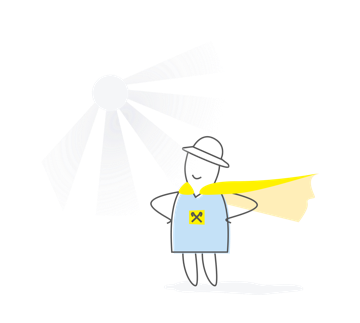Sole proprietor: purchasing a motor vehicle for commercial activity
Entrepreneurs often need a motor vehicle for their business operations. Can they pay for the purchase of automobile from a business account? Would that be reflected in the entrepreneur’s accounting? We shall try to answer these and other questions.
Sole proprietors have these questions, because a motor vehicle can be registered only to a legal entity or a private individual, and they want to pay for the car purchase from a business account. Since the price of an automobile is not that small, cash withdrawal transactions will result in the loss of money in the form of bank fees.
If this question were asked at the beginning of this year, the answer would have been definitely “no”: personal expenses cannot be paid from a business account. That’s because the National Bank of Ukraine pushed through legislative changes allowing to spend funds in a business account solely for business purposes, while personal expenses could be paid for only after paying all taxes and duties. These changes took into account neither the sole proprietorship taxation system nor the tax payment procedure applicable to the concrete flat tax group or the general taxation system. The aforementioned requirements were in force for less than a month. Presently, sole proprietorships are permitted to spend funds in a business account both for business and for personal purposes. However, one should not forget that a business account was opened for the purpose of business transactions. It means that when a sole proprietor makes payment to the account of another sole proprietor, regardless of whether or not the payment is made for goods (works, services) related to business activity, the former sole proprietor acts as a tax agent, because he pays income to another sole proprietor. And that means that at the end of the quarter in which the said income was paid, the payer is required to report this transaction on the Form 1 ДФ.
If the payee is a legal entity, the payer will have no additional reporting obligations, because the Form 1 ДФ is used to report income assessed (paid) to individuals, including sole proprietors.
Therefore, a sole proprietor can pay for a car purchase from a business account. The law does not prohibit that, but one should bear in mind the foregoing, i.e., who the seller is, and be ready that the bank could require documents confirming the source of funds.
It is worth reminding that sole proprietorships – flat tax payers are mostly required to keep accounting of revenues, while the purchase of an automobile is an expense, and therefore, it won’t be reflected in the accounting, especially since even the sole proprietorships operating under the general taxation system cannot include car maintenance costs to the accounting, because Ukrainian law does not permit them to depreciate cars.
Even though a motor vehicle is a fixed asset, sole proprietorships are not obliged to account it as a fixed asset, because they do not keep accounting.
The problem with paying a car purchase from a business account occurs the most often in sole proprietorships which are VAT payers. Tax authorities do not want to recognize a VAT credit in the vehicle price, reasoning it by the fact that the vehicle will be registered to a private individual, not a sole proprietorship.
Even if a motor vehicle is registered to a private individual, Ukrainian law does not prohibit the vehicle’s use for business purposes. However, vehicle maintenance costs will not have any effect on taxation, especially in sole proprietorships – flat tax payers, because they pay flat tax in a fixed amount (1st and 2nd group) or as a percentage of income. At the same time, expenses do not reduce the amount of income.
In the conclusion, it is worth noting that in addition to the vehicle’s price, the sole proprietorship will incur an expense in the form of pension tax payable on the purchase of a new car – subject to first registration.
The object of taxation is the car price. The pension tax rate depends on the vehicle’s price as follows:
3% - if the car price does not exceed 165 times the subsistence income amount set for able-bodied persons as of 1 January of a reporting year;
4% - if the car price exceeds 165 but does not exceed 290 times the subsistence income amount;
5% - if the car price exceeds 290 times the subsistence income amount.
As of 01.01.2020, the subsistence income amount was 2102 hryvnias. Therefore, the 3% rate applies to vehicles priced under UAH 346,830; the 4% rate applies to vehicles priced over UAH 346,830 but under UAH 609,580; and the 5% rate applies to vehicles priced over UAH 609,580.
The Interior Ministry’s service centers register cars only after pension tax is paid and the payment is confirmed by the appropriate document.
















